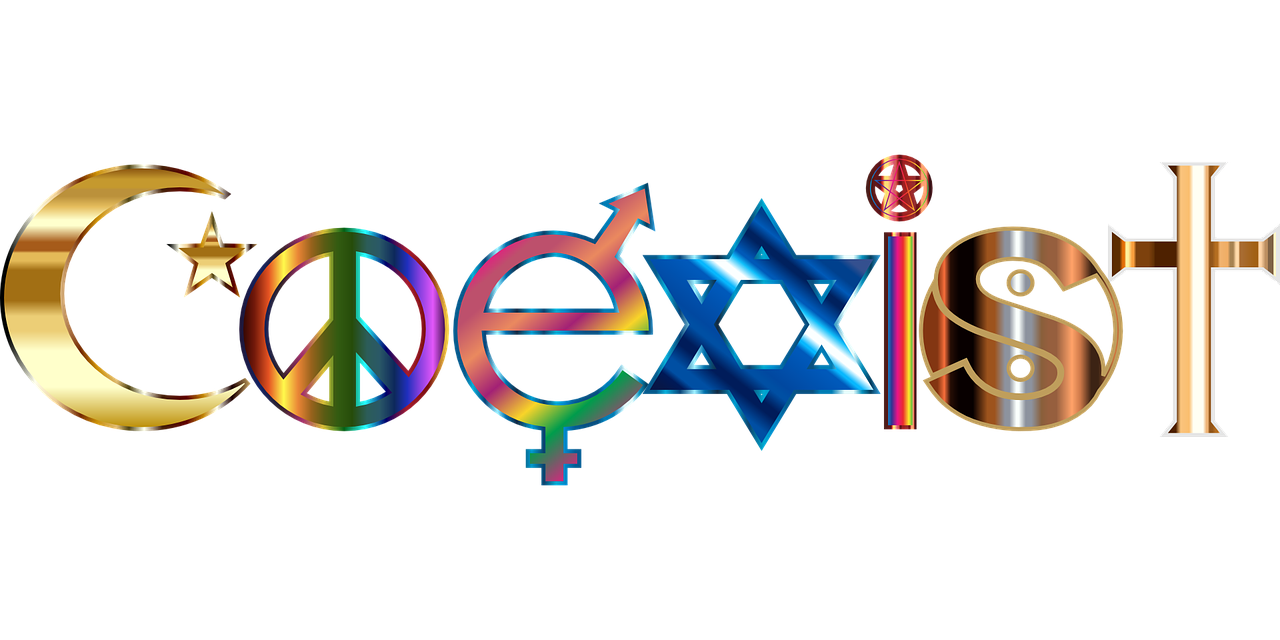Islam is the last of the great religions. It embraces all religions which went before it, and one of its most striking characteristics is that it requires its followers to believe in all the prophets who preceded the Holy Prophet Muhammed (peace and blessings be upon him).
The Holy Quran, Islam’s holy scripture, states: “Say we believe in Allah, and in that which has been revealed to us, and in that which was revealed to Abraham and Ishmael and Isaac and Jacob and the tribes, and in that which was given to the prophets from their Lord; we make no distinction between any of them.” (2:136).
A Muslim, therefore, believes not only in the Prophet Muhammed, but in all prophets of God. It follows then, that by becoming a Muslim, one does not automatically abandon one’s former faith. Rather, one merely takes on a new perspective, which incorporates their past beliefs in a wider horizon.
So what can Islam offer mankind in this present age? Islam is a philosophy, a set of religious beliefs, and a way of life. Literally, the word Islam means peace and surrender because it means a Muslim is one who surrenders totally to the Will of God. The central belief is that “There is none worthy of worship but the One and Only God Allah, Who possesses all excellences, and Muhammed is His Messenger.”
We are told in the Holy Quran that the ultimate object of a person’s existence is to win nearness to God. In Chapter 84: Verse 6 we read: “O Man! Thou must strive to attain to thy Lord a hard striving until thou meet Him.”
Muslims have been instructed to live in the service of God while on this earth. Islam teaches that after any human’s death, all their deeds will be assessed and weighed. While humans are born sinless, their purpose of life is to gain a near connection with God, with a view to meeting Him in the Hereafter.
Salat (congregational prayer) plays a critical role in establishing that deep personal relationship with God, while also serving as an important social institution. It is a time when people rich and poor, of high rank and low rank, stand next to each other as equals to remember God.
Muslims are also instructed once a year to observe fasting during the entire month of Ramadan. In the Islamic fast, Muslims eat and drink before dawn and then refrain from food and drink until sunset. It enables one to attain a feeling of closeness to God. It provides an opportunity for one to gain an appreciation of the discomfort that the poor have to endure in their everyday lives.
Islam is a complete code of life, providing instructions for its followers in all aspects of life —the kinds of foods that may be eaten, the way one should dress, how one should conduct business, social graces, marriage, divorce and human rights.
Islam places great emphasis on the welfare of the community as a whole. Zakaat (Tax on unused Wealth) is the fourth pillar of Islam, which can more appropriately be called the purification of wealth. It is a kind of tax that requires Muslim to give up a certain amount of their excess possessions (2 percent rate on a yearly basis) for the upkeep of the poor and those who have no earning capacity. It promotes giving instead of hoarding.
In short, Islam’s code of conduct guides us toward our responsibilities toward our Creator and toward our fellow human beings. In Chapter 3: Verse 111 we read: “You are the best people raised for the good of mankind; you enjoin what is good and forbid evil and believe in Allah.” This verse explains that the purpose of Islam is service to mankind, spreading good, stopping evil and believing in God.
I invite you to learn more about Islam from your Muslim neighbors. We are here as your friends and look forward to building bonds of trust and respect.
Salman Tariq is Imam of Ahmadiyya Muslim Community USA.

